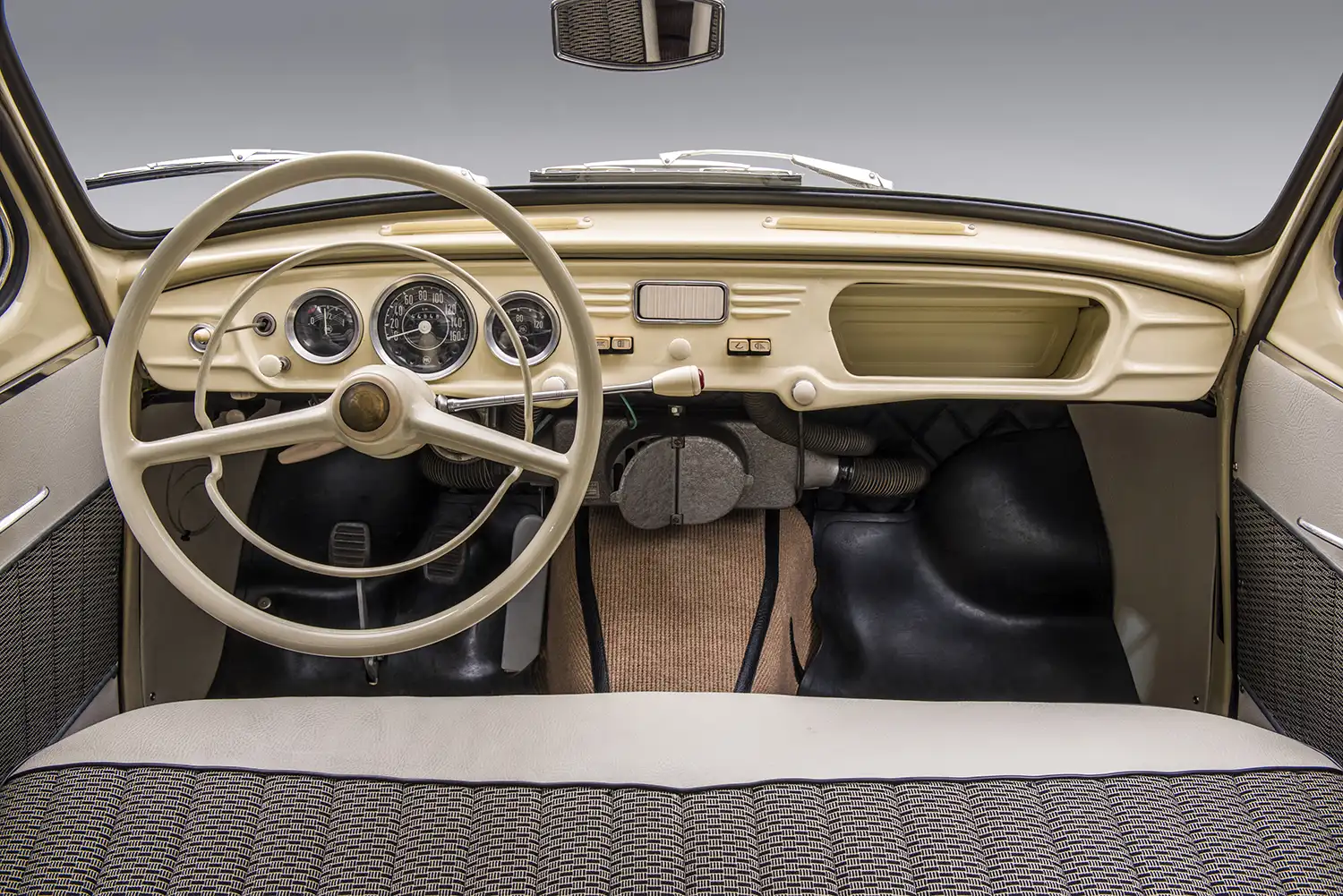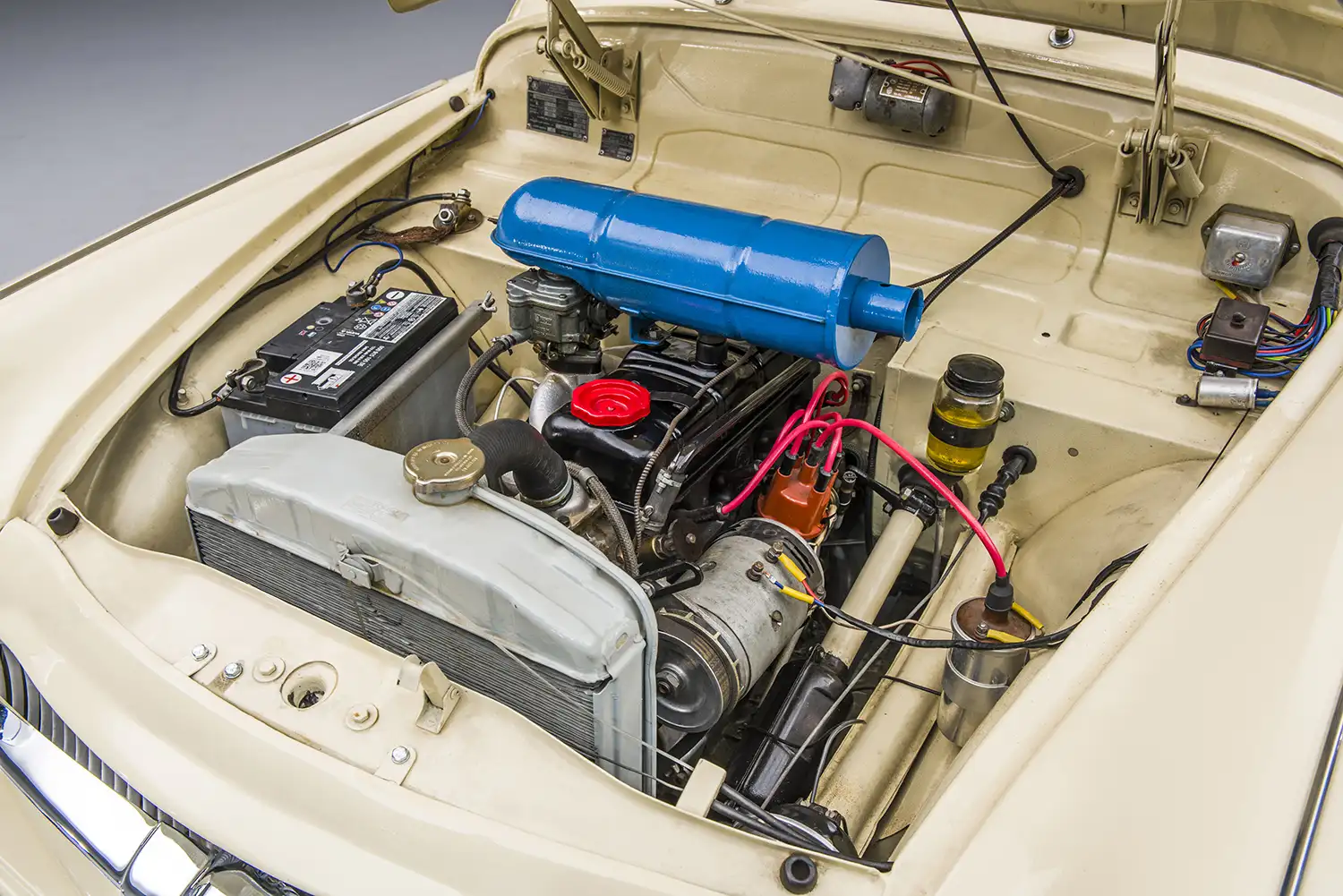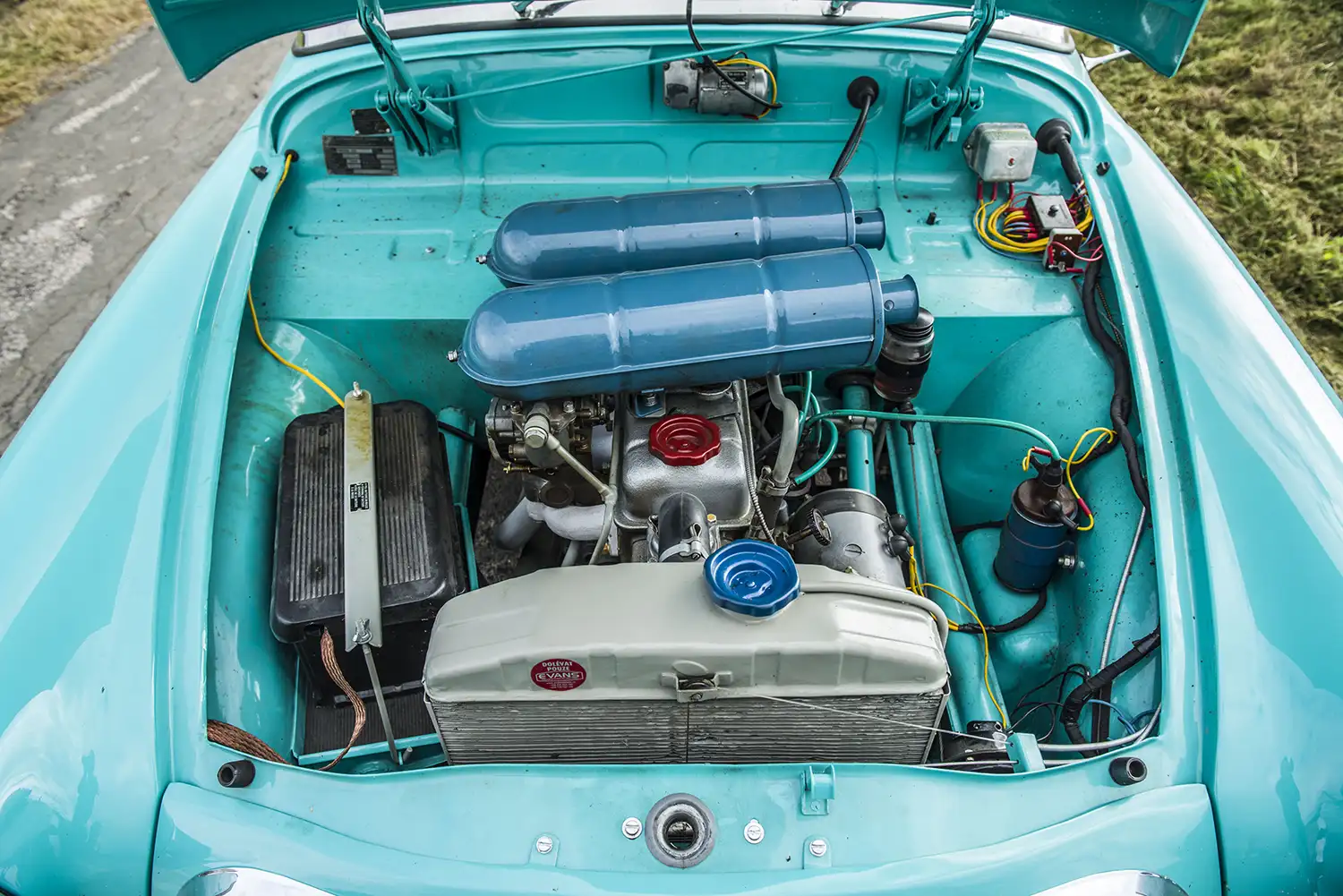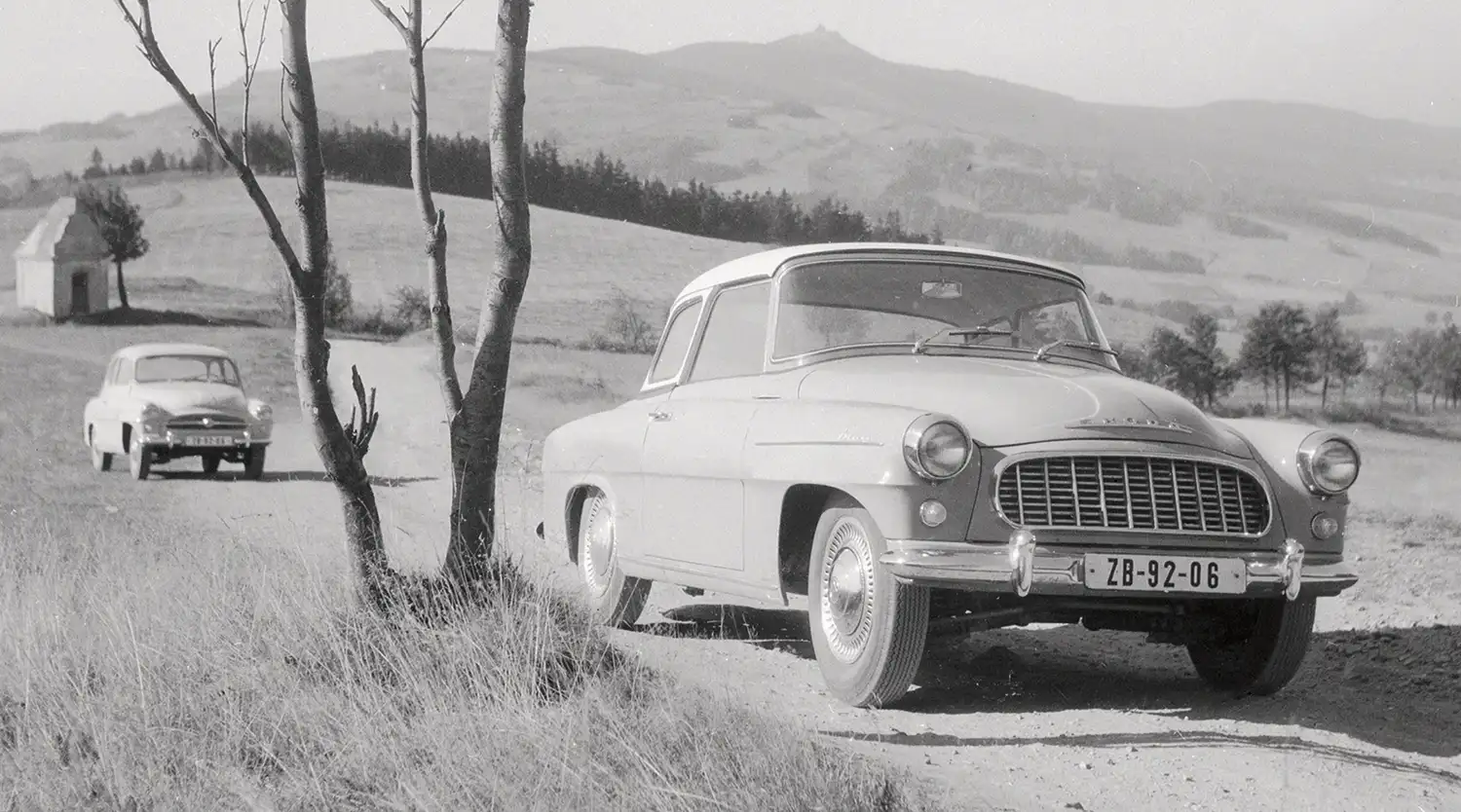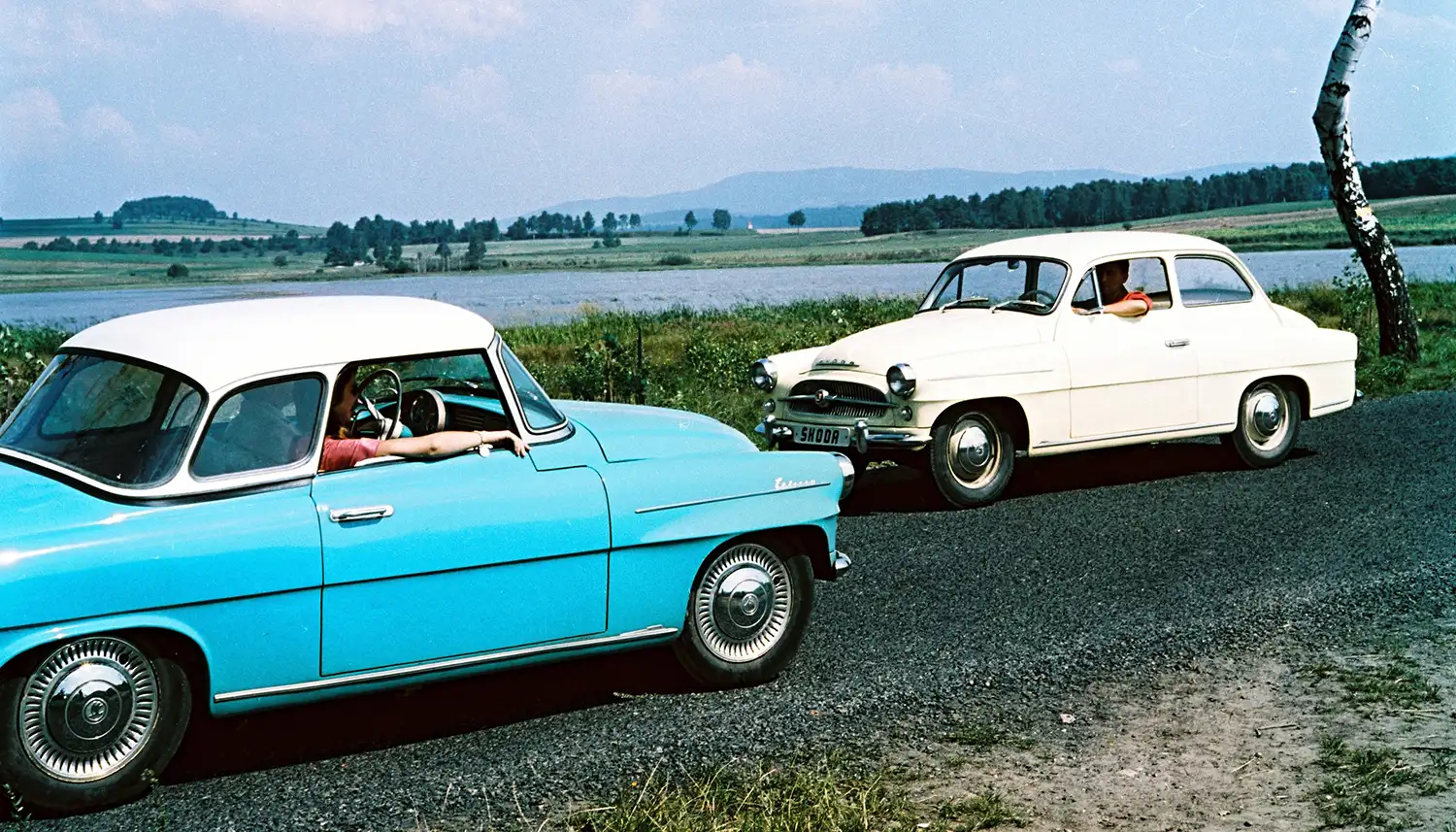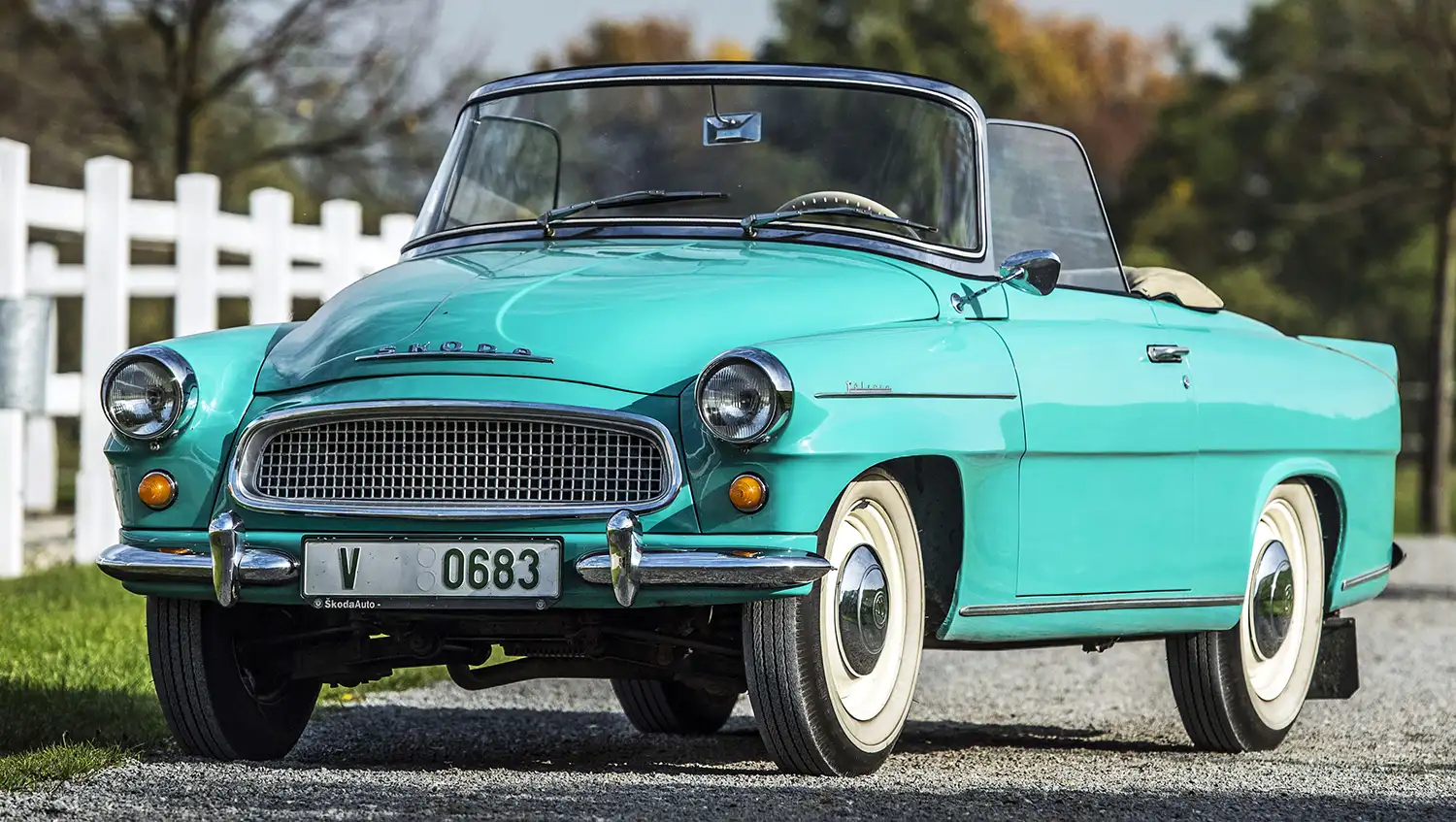
This year marks the 65th anniversary of two iconic model designations, which have carved out their place in Škoda Auto’s current era: the Octavia and Felicia. Both vehicles were first presented to the public at the Geneva Motor Show in March 1959, and subsequently in Leipzig. Launched in 1996, the modern Škoda Octavia has attracted over seven million customers in more than 60 markets across its four generations.
Octavia: the eighth chapter in the legacy
In March 1959, Škoda unveiled two comprehensively upgraded vehicles at the Geneva Motor Show: The Octavia, a closed-top saloon and the Felicia, a convertible. Among many other modifications, these cars received a redesigned front axle, where the traditional leaf spring suspension was replaced with coil springs paired with telescopic dampers. Regarding the model designations, the car manufacturer moved away from numerical model naming, opting instead for word designations.
For the saloon, formerly known as the Š 440/445, the name Octavia was chosen, derived from the Latin numeral ‘octava’, meaning eighth. This was fitting, as it was the eighth model produced by the Mladá Boleslav-based carmaker since 1945. On top of that, from a technical standpoint, the Octavia was the eighth vehicle featuring a backbone frame, independent front suspension, and four-cylinder engines. The base version of the Octavia was powered by a 1. 1- litre four-cylinder engine delivering 29.4 kW (40 hp), driving the rear wheels through a four-speed gearbox and achieving a top speed of 110 km/h. The more powerful Octavia Super featured a 1.2- litre engine (33 kW/45 hp), reaching a top speed of 115 km/h.
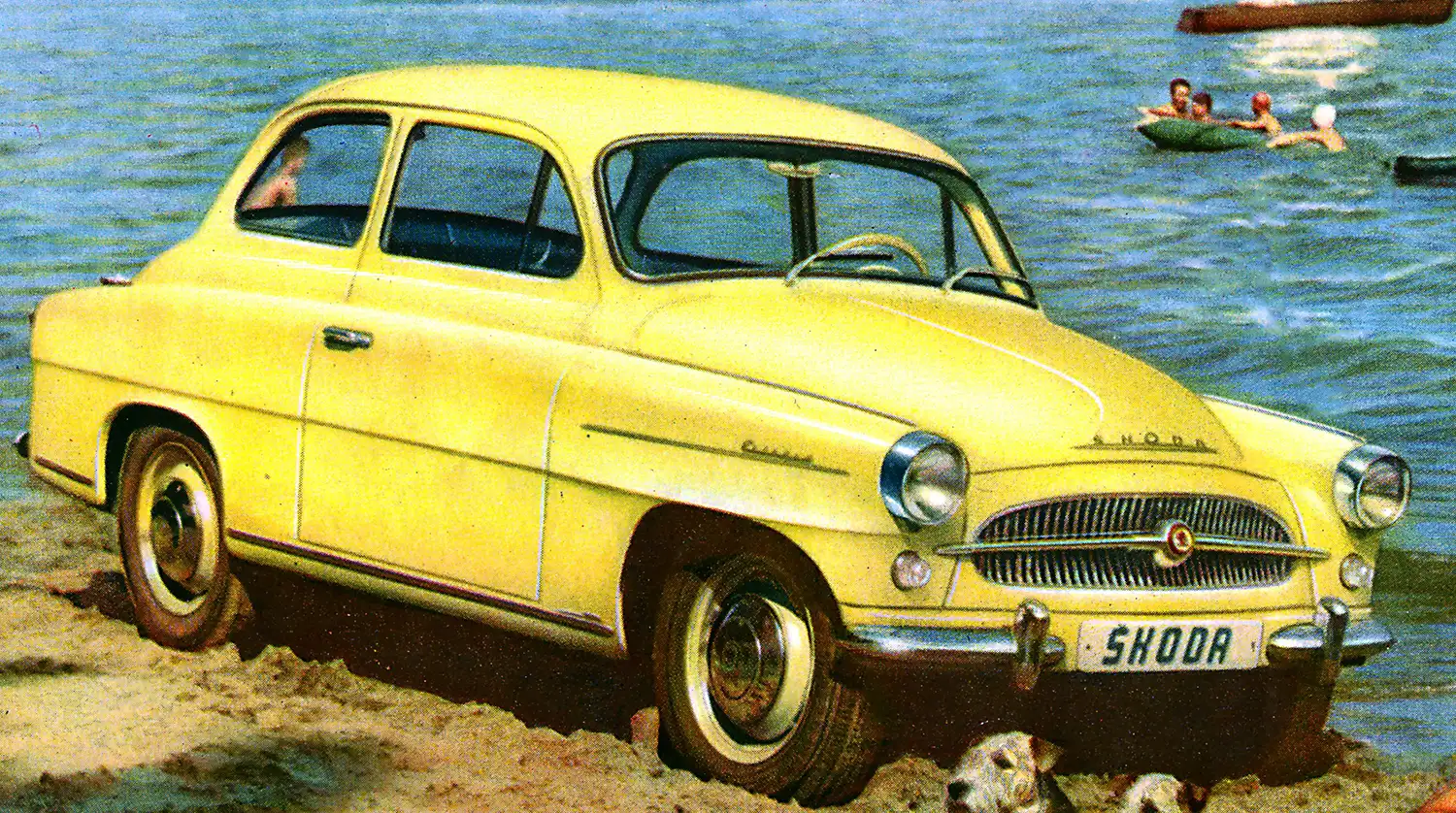
Felicia: a symbol of happiness captivates New York
Alongside the four-seater Octavia models with their closed bodies, the beginning of 1959 also saw the launch of an attractive convertible named Felicia. The 1089 cm³ four-cylinder engine with a twin-carburettor tuned to produce 50 hp (37 kW). The model designation was derived from the Latin word ‘felicitas’, meaning happiness. The Škoda Felicia was the successor to the open-top Škoda 450, primarily aimed at export markets. Between 1958 and 1959, only around a thousand units of this car were produced. However, the automaker was well aware of the new Felicia model’s potential: Thus, shortly after the March premieres in Geneva and Leipzig, three new convertibles made their way across the pond to the New York Auto Show at the Coliseum in April 1959, attended by nearly seventy exhibitors from around the world. There was great interest in the Czechoslovak convertible, partly thanks to a joint promotion with Miss USA 1957, Charlotte Sheffield. Though the Felicia model’s career was not long, it was exceptionally successful. By 1964, nearly 15,000 units of this series had been produced for markets in Europe, South and Central America and even Africa.
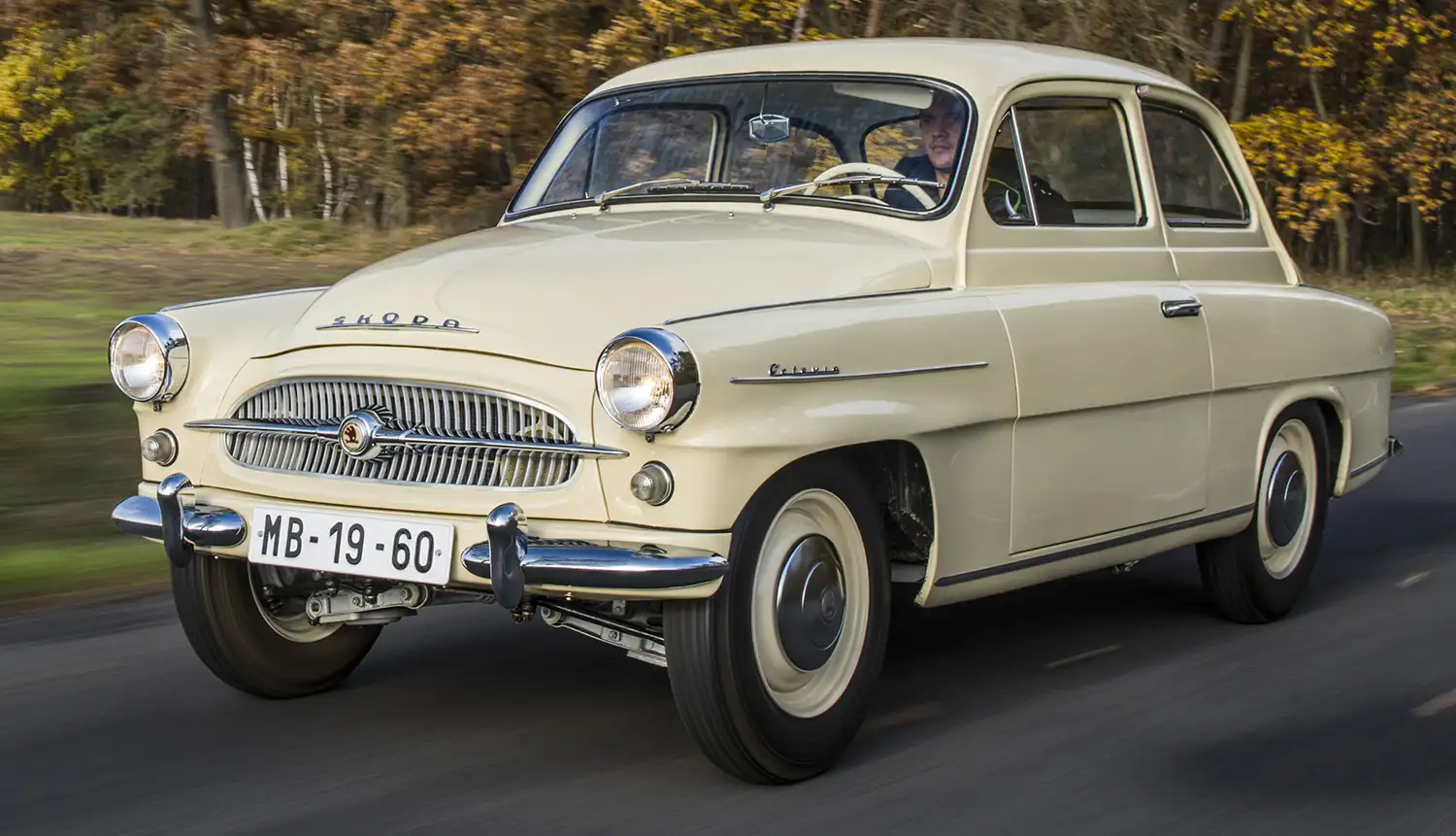
Beyond a new axle: a host of technical enhancements
Both the Octavia and Felicia were the result of a major overhaul of the ‘Spartak’ model with the new front axle standing out as a key upgrade among many. The engineers focused on reducing vibration transmission, enhancing driving comfort, and improving engine lubrication and cooling.
Reviving legends: the Octavia and Felicia in modern times
In the 1990’s, the symbolic and real value of these model designations warranted their reintroduction. Thus, on 26 October 1994, the new Škoda Felicia hatchback was officially unveiled to the public at the Atrium Hotel in Prague. The successor of the Škoda Favorit was equipped with numerous safety features, for example airbags and an ABS braking system. In June 1995, the model portfolio was extended by the Felicia Combi estate variant, which was first presented to the public at the Brno Auto Show.
The first modern generation of the Octavia made its debut in 1996, marking a milestone in the automaker’s recent history. The model quickly became the car manufacturer’s best-selling vehicle. The second generation was launched in 2004, followed by the third in 2012. The current fourth modern generation debuted in 2019 and underwent a facelift in February 2024. With over seven million units sold across its four modern generations, the Octavia ranks among the top ten best-selling cars in Europe and remains a mainstay of Škoda’s line-up.
